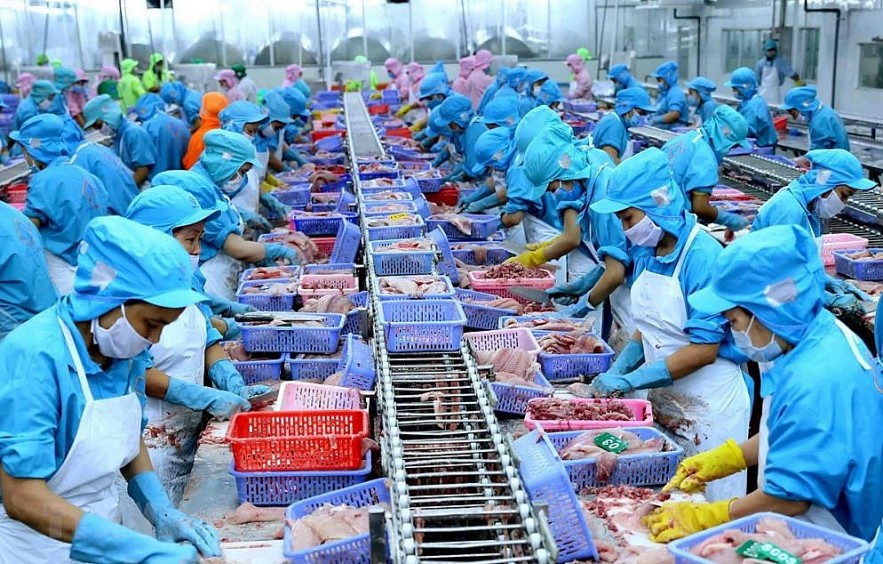Vietnam's Seafood exports to South Korean Market Increased by 51% after 10 Years
South Korea is Vietnam's largest import market for squid and octopus
After 2015, when the Vietnam - Korea Free Trade Agreement (VKFTA) took effect, Vietnamese seafood exports to South Korea increased from USD 585 million in 2015 to USD 787 million in 2023, an increase of 35%.
Seafood products exported to South Korea all recorded growth: shrimp increased by 37%, squid and octopus increased by 51%, and other fish (except tuna and pangasius) increased by 4%.
According to the Vietnam Association of Seafood Exporters and Producers (VASEP), the VKFTA signed and effective from the end of 2015 is an important tool to help the two countries implement their economic trade development strategy. The agreement has a positive impact on Vietnam's main export products to Korea, including seafood.
 |
| Photo: VGP |
Forecast of positive market growth
In 2023, Korea's seafood imports decreased because the economy has faced many challenges and domestic demand has decreased. According to statistics from the Korean Customs Agency, in 2023, Korea's seafood imports reached 1.341 million tons, worth USD 5.928 billion, down 15.9% in volume and 8.4% in value compared to the previous year.
Among the 10 largest seafood supply markets in 2023, Korea increased seafood imports from China, Peru, and Chile, while decreasing imports from Russia, Vietnam, Norway, and Japan.
In 2024, Korea's seafood imports are likely to increase when the South Korean economy is forecast to recover. The Central Bank of Korea (BOK) forecasts that the country's economic growth will reach 2.1% in 2024, up from 1.4% in 2023.
The change in seafood consumption trends in Korea following the trend of reducing consumer spending is an opportunity for Vietnamese seafood to promote the export of aquatic products at reasonable prices.
Like Japan, exporting to Korea has the advantage of close geographical location, stable consumption demand, and is the destination of many businesses shortly in the context of inflation causing consumption to decline sharply in Western markets.
While Red Sea tensions caused shipping rates to the US and Europe to skyrocket, closer markets such as Korea are also of interest to many businesses.
To be able to "speed up" exporting seafood products to the Korean market, as well as conquer consumers in this market, products need to ensure quality and flavor; stability in production, processing, and circulation; ensure food safety and hygiene, safety in processing and circulation; grasp and understand the needs and tastes of consumers...
 | Vietnam's seafood export to U.S: drop sharply by 37 per cent to around USD90 million Exports to the United States, the largest importer during January, dropped sharply by 37 per cent to around USD90 million, compared with the same period ... |
 | Vietnam's seafood output hits 2.3 million tonnes in eight months Vietnam’s total output of caught fish in the first eight months of 2017 reached nearly 2.3 million tonnes, up 3.4 percent year-on-year, according to the ... |
 | China increases crab purchase from Vietnam in first four months 2020 Vietnam's crabs export to China in the first 4 months this year tripled amid the Covid-19 pandemic. |







